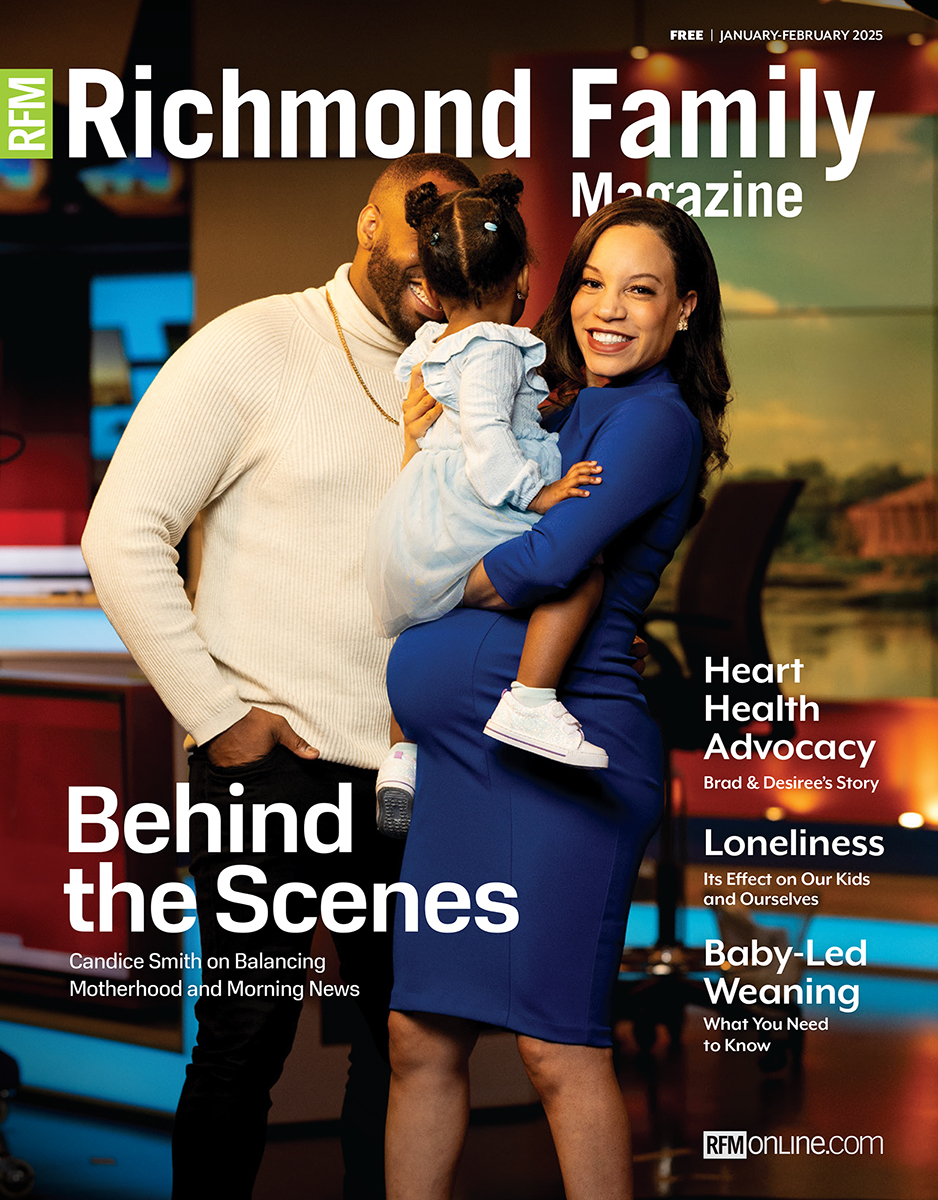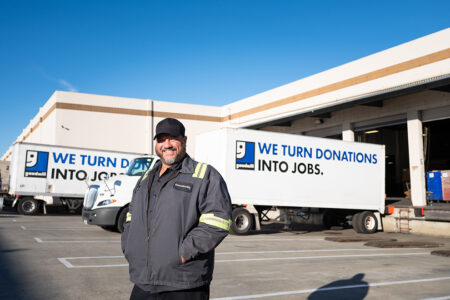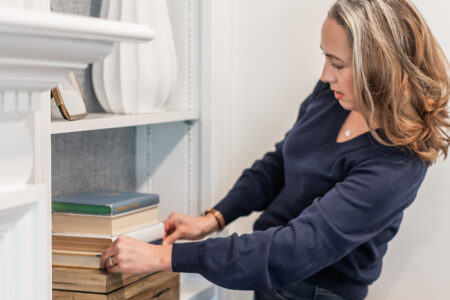When Rita Wynne’s son Colin was diagnosed with autism at sixteen months, she was floored. “We were blown away,” recalled the Hanover County mom of four. “Physically, he was perfect, walking at nine months. He just wasn’t talking, but with two older brothers, we didn’t think there was a problem.”
That diagnosis was the beginning of a journey to find the right care for Colin. “They told us that it would never go away, but it could get better. And we were determined to throw everything at it,” said Wynne.
For the Wynnes, that has included specialized private education. At age two, Colin started a special education preschool program. He’ll be seven this month, attends the private Founders Center of Commonwealth Autism (formerly known as the Dominion School for Autism), and with that specialized attention, is thriving. “That kind of support for Colin and for us is key. When we have a place where he can go, and they work so hard for him and help him, it’s great,” says Wynne.

Many children with special needs are successful in the public school system, which diagnoses and develops individual education plans (IEPs) for students. Students may be mainstreamed in a regular classroom with or without an aide, or may be in a special education class. Public schools offer additional services and special instruction for those children, or the students may receive accommodations such as extra time on tests.
But some parents feel their child would benefit from a more personal experience, and that’s where a private school can be valuable.
Fortunately, the Richmond area is home to numerous private schools that serve special needs populations. Of course, families need to do the legwork to find the one that best fits their child’s needs. Levels of support for children with special needs vary from minimal to very comprehensive.
Nancy Foy, head of school at The New Community School, says private schools often can

remediate what public schools can only accommodate. “It’s not just about fixing what’s wrong; it’s about finding what makes you great.”
Private schools may specialize in educating students with learning, behavioral, mental health, medical, or intellectual disabilities. The staff has additional training to support students. But how do you know what’s right for your child?
“I tell families to visit multiple programs,” said Rachel Reynolds, communications and compliance coordinator at the Founders Center. “Each school has its own personality and its own way of doing things. You do good research and decide which you like best.”
In addition to the Founders Center, other specialized area schools for students on the autism spectrum include The Faison School, the Sarah Dooley Center for Autism at St. Joseph’s Villa, and the Spiritos School.

Those schools may include applied behavior analysis (ABA), sensory integration therapy, social skills training, and other interventions.
Similarly, a school for children with dyslexia may include teaching staff trained in a research-based reading intervention such as Orton Gillingham, which could be woven into every aspect of the curriculum. At The New Community School, which offers college-preparatory instruction in grades five through twelve, the curriculum includes a class in language fundamentals, which drills down to each student’s particular obstacles to learning.
In many cases, students come to New Community from elementary programs at the Riverside School or similar places, so they’re familiar with the Orton Gillingham method.
Development Director Dan Stackhouse notes that the small class sizes in a private school like New Community give students a big advantage.
“All of our students come to us with coping mechanisms,” he noted. “Sometimes, it’s just avoidance of schoolwork, or sometimes they’ve learned they can charm their way out of work. But when you get in a class with just six students, there’s no back row to hide in.” Stackhouse added, “Some students have been getting by on Bs and Cs, but they could be A students if they could figure out how to learn.”
Stackhouse and other private school educators realize that students in public schools often face challenges outside their disability. “Some kids are broken by the system. They may have just given up on learning and their self-esteem is damaged,” said Stackhouse.

Pat West, head of school at Northstar Academy, sees many students who have felt alienated by their former schools. Northstar serves students with a variety of special needs, and incorporates a social skills class into its curriculum. Northstar often consolidates students with differing conditions into the classroom, allowing them to learn from each other and practice those social skills.
Northstar teachers are trained in the Lindamood-Bell reading intervention learning process, a multimodal approach that has been shown to benefit students with dyslexia and autism.
While some Northstar graduates attend college, West is proud that the private school offers its flagship career academy program for students ages sixteen through twenty-two, offering technical education courses in business administration, hospitality, materials handling, construction and maintenance, and veterinary assistance. Classwork in the subject areas is augmented with an internship in the field. “Our students are building their resumes,” West notes. “Unlike a lot of other programs that just prepare students to go on to higher education of some kind, we view our kids as being able to go straight into a career when they finish their education here.”
Other schools such as Elk Hill offer career-training programs to ensure that graduates have work skills. Elk Hill and the John G. Wood School at the Virginia Home for Boys and Girls employ teachers specially trained to address learning needs of students with social and behavioral challenges.
 Besides intensive learning programs that target specific needs, private schools generally are able to offer a much denser staffing ratio than public schools. Often that kind of attention is something that attracts parents.
Besides intensive learning programs that target specific needs, private schools generally are able to offer a much denser staffing ratio than public schools. Often that kind of attention is something that attracts parents.
For example, Wynne knows Colin will be safer in an environment that’s almost a one-to-one ratio between student and teacher. “Colin always has someone with him. We need the safety and security of someone always with him, and that’s important peace of mind for us.”
But naturally, that comes with a price. Tuition at some private schools is steep, upwards of $50,000 per year. Add that to the extra costs incurred by a child with special needs, and it seems daunting. Typically, if a public school system can offer the services a student needs, the student is expected to stay in the district. Under the federal Individuals with Disabilities Education Act, schools must provide a “free and appropriate” education to children diagnosed with disabilities. The cost can be high, since many of the students require a one-on-one or small group setting.
The child’s education team – comprised of teachers, parents and specialists – determines the child’s needs, which are documented in the IEP. But if the schools cannot accommodate the student, then tuition is subsidized in a private program.
Besides becoming an advocate for the best possible services from a local school district, many parents switch schools within a district, change districts, work within the legal system, or hire consultants to help find a solution.
Yet, private school may not be out of the question for cash-strapped families. Most have scholarships available for lower-income students. It should also be noted that many insurance companies now pay for the education of students with autism, a legal requirement that goes back several years.
In some circumstances, the cost of tuition is tax-deductible as a medical expense, notes Stackhouse of New Community. The IRS guide to medical tax deductions (found on the IRS website) says families “can include in medical expenses fees you pay on a doctor’s recommendation for a child’s tutoring by a teacher who is specially trained and qualified to work with children who have learning disabilities.”
Virginia Senator Walter Stosch believes parents should have a choice as to what kind of care their child with a disability receives, and where their child should learn. “They know their child best, and if they have a unique need, parents should be able to seek out the best possible environment for that child.”
While serving in Virginia’s state legislature from the early 1980s until his retirement this year, Stosch advocated for legislation that supported a parent’s right to choose. In Virginia, he introduced the ABLE Act, which allows the creation of a tax-advantaged savings account similar to the 529 plan. In addition, some scholarship money for qualified families is available through Virginia’s Educational Improvement Scholarship Tax Credit program and GReat Aspirations Scholarship Program (GRASP). It allows families to save and use funds tax-free, not only for education, but also for anything that meets the needs of a child with disabilities, including some learning-based disabilities. Families should follow up with an accountant or attorney to get specifics.
For Rita Wynne, the education Colin gets at the Founders Center has been priceless. “I know he’s where he is supposed to be. He gets support and love. These people just love him. And we get the support as a family.
“When Colin began there, he wasn’t talking at all. This year, every day when I drop him off, he says, ‘Bye Mommy, I love you.’”







